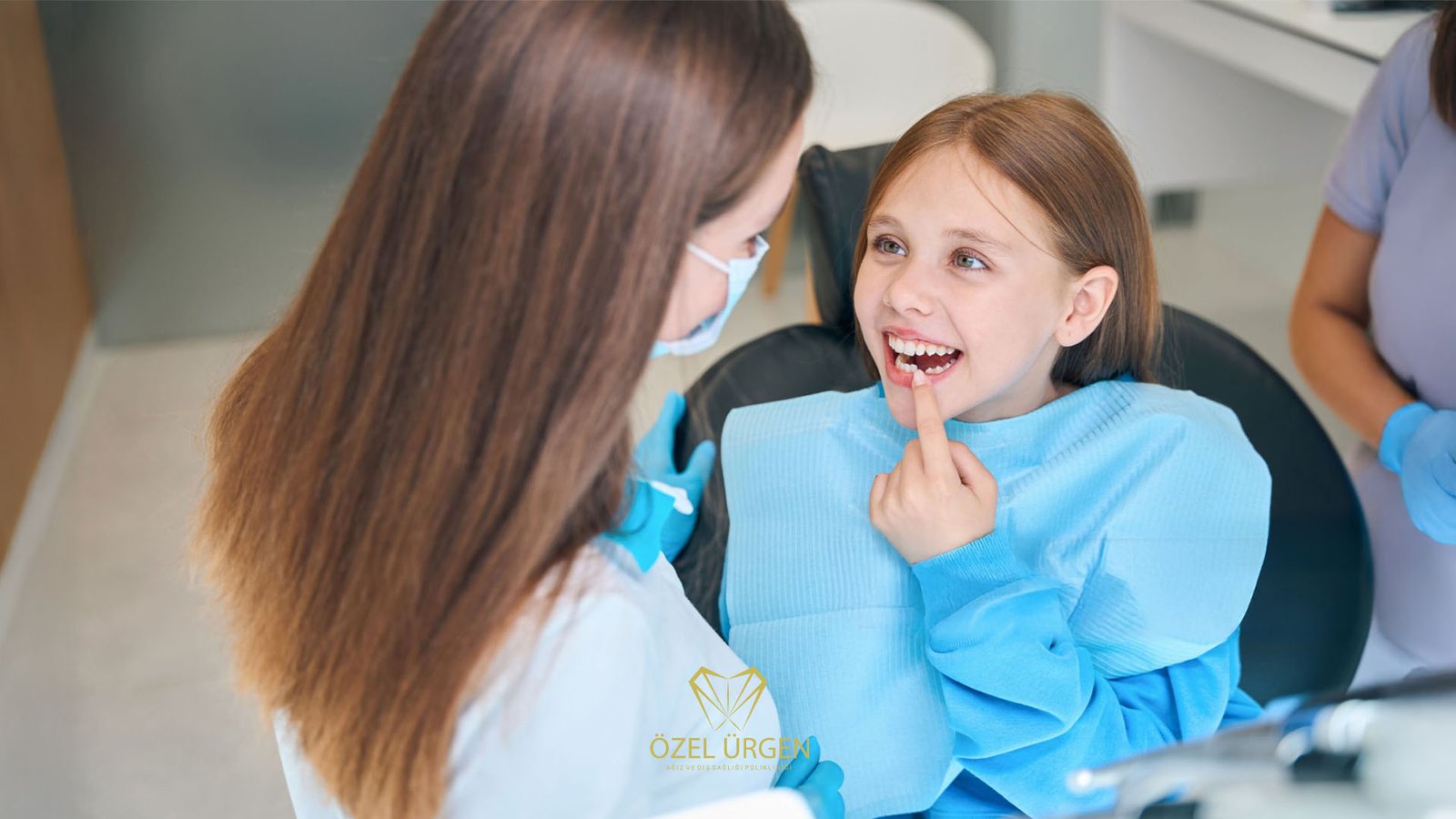- Mon - Fri 10:00 - 19:00
- Hacıhalil, Hükümet Cd. No : 80 Gebze/Kocaeli
- info@urgendis.com

Childhood is a critical period in shaping many habits and emotional experiences in a person’s life. Negative experiences during this time, especially fear of the dentist, can persist into later years. Therefore, seeking support from pedodontics specialists for children’s oral and dental health is highly important.
Pedodontists receive special training in communicating with young children and provide treatments tailored to their physical and emotional development. This approach helps children maintain dental health while completing treatment without fear or anxiety.
Commonly known as pediatric dentistry, pedodontics is a specialized field of dentistry that focuses on the oral and dental health of children from infancy through adolescence. However, pedodontics is not only about treating teeth; its main goal is to protect children’s oral health, instill proper habits, and prevent future problems before they occur.
Children’s oral structures and dental development are significantly different from adults. Therefore, pediatric dentists apply special techniques suitable for each child’s age and developmental stage. For example, during a child’s first dental checkup, pedodontics involves not only examination but also teaching proper brushing habits and healthy nutrition in a way that does not cause fear.
This field also plays a critical role in shaping children’s perception of dental care. Negative experiences in childhood can lead to dental anxiety in later years. Pedodontists establish trust-based communication, comfort children, and help them develop a positive attitude toward oral health.

Additionally, pedodontics offers preventive applications to detect and avoid cavities early. Fluoride treatments, fissure sealants, and regular checkups are key approaches that ensure children maintain healthy teeth as they grow. This way, oral health is supported in a manner that is appropriate for both physical and emotional development.
Taking the right preventive measures during childhood can prevent more serious dental problems later. Pedodontics helps children have teeth that are healthy both aesthetically and functionally. Childhood tooth decay, tooth loss, or bad habits (like thumb sucking or prolonged bottle use) can lead to significant problems in later years. Pedodontics minimizes these risks and ensures a healthier future for children.
Pediatric dentists are well aware of the common dental problems children face and offer specific solutions for each situation. The most frequently seen issues include:
Tooth Decay
Savory teeth are more sensitive than permanent teeth, and cavities can progress quickly. Early detection and regular checkups are crucial, as decay can not only affect appearance but also hinder the proper eruption of permanent teeth.
Gum Problems
Gum bleeding, redness, or inflammation is common in children. While often caused by insufficient oral hygiene, genetic factors can also play a role. Pediatric dentists teach proper brushing techniques and provide treatments to protect gum health.
Teeth Grinding and Clenching (Bruxism)
Some children grind or clench their teeth, especially during stressful periods or due to certain habits. Over time, this can lead to tooth wear, jaw joint problems, and headaches. Early intervention helps control these habits effectively.
Orthodontic Issues
Misaligned teeth or jaw discrepancies can be detected and corrected early, often preventing the need for more serious and costly orthodontic treatments later. Regular checkups are therefore important for both aesthetic and functional reasons.

Pediatric dentistry differs from general dentistry by taking the child’s psychology into account. The examination process is often gamified, so the child does not feel fear toward the dentist. After getting to know the child, the pedodontist determines the appropriate treatment plan. Some of the methods applied during this process include:
Maintaining children’s oral and dental health is not limited to clinical procedures; daily routines at home are equally important. Proper habits established at a young age significantly reduce the likelihood of dental problems later. Children should brush their teeth at least twice a day using age-appropriate toothbrushes and toothpaste. Even for primary teeth, using dental floss to clean between teeth is essential.
Controlled consumption of sugary foods and drinks also reduces the risk of cavities. Regular dental checkups are essential for healthy dental development; specialists typically recommend visiting the dentist twice a year so potential problems can be detected and addressed early.

Primary teeth usually begin to erupt around the 6th month of life and are generally complete by age 5. However, every child is different; some may start teething earlier than 6 months. Therefore, it is recommended that children have their first pedodontist visit by age 1. The American Academy of Pediatric Dentistry (AAPD) and the World Health Organization (WHO) also emphasize that the ideal first checkup is between 6 months and 1 year.
The first visit is not only for checking teeth but also for shaping oral health habits. During this examination, the specialist provides parents with detailed information about the child’s oral and dental development, explains normal and abnormal conditions, and helps families detect potential problems early.
Additionally, doctors guide families on oral care routines for babies, including brushing techniques, proper toothpaste selection, gum cleaning, and nutrition habits. Newly erupted teeth are carefully examined, and any irregularities, cavities, or jaw development issues are assessed.